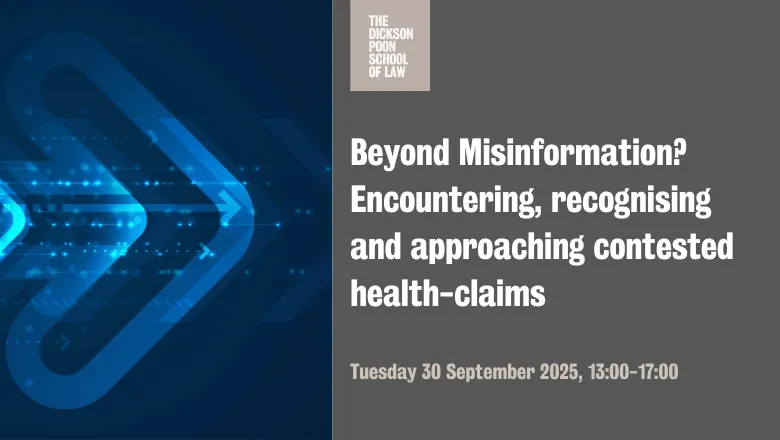New research project launched to explore how unproven, disproven and misleading health-related claims are regulated
Led by Professor Emilie Cloatre, the £5m interdisciplinary Wellcome Discovery Award will explore critically how unproven,...

Venue: Wellcome Collection, 183 Euston Rd, London NW1 2BE
Date and time: 30th September 2025, 1pm-5pm (followed by a drinks reception)
Organisers:
‘Misinformation’, we are often told, is everywhere. In recent years, there has been significant policy attention to regulation of unproven, disproven or misleading health-claims, and their potentially harmful effects. Concerns span areas as diverse as mental health, reproductive health, weight loss and life-threatening diseases. Controversial claims can originate from a range of groups and individuals, including social media influencers, the wellness industry, religious lobbies or political figures.
But not all unproven, disproven or misleading claims are deemed equally problematic – not all become framed as ‘misinformation’. Governments and others make a range of decisions about which types of claims are tolerable, and which are deemed so harmful or problematic that they require intervention. How and why those decisions are made is often unclear, and policy discourses on misinformation do not always acknowledge the difficulties and complexity of drawing lines of tolerance.
In this event, we will open-up the concept of misinformation to acknowledge its blurry boundaries, and reflect on the type of social, political and legal work it can and – vitally - cannot do. Acknowledging its importance but also its limitation, we will explore what is at stake in defining and conceptualising contested health-related claims as misinformation or otherwise.
Exploring diverse contexts, including chronic illnesses, reproductive health, longevity discourses, so-called ‘conversion therapies’, and traditional healing, we will discuss questions such as:
Confirmed participants include:
This event is part of the Wellcome Discovery Award “Between Deception and Dissent”.
For more information on the project, please visit the project website.